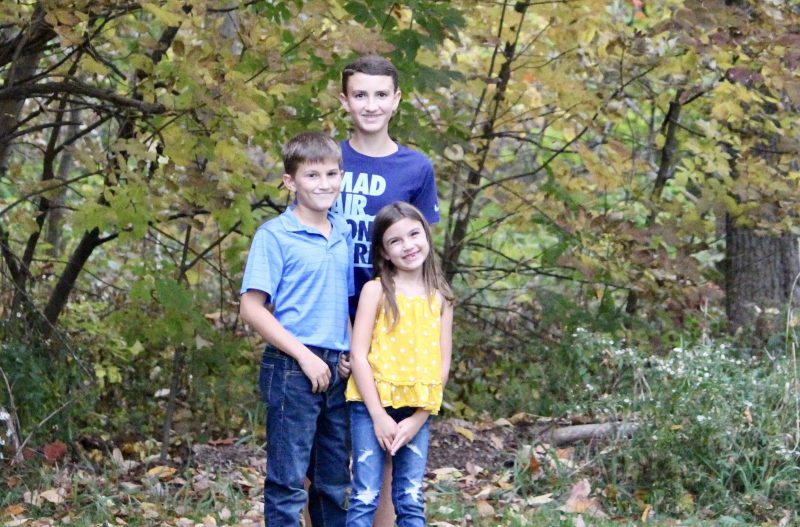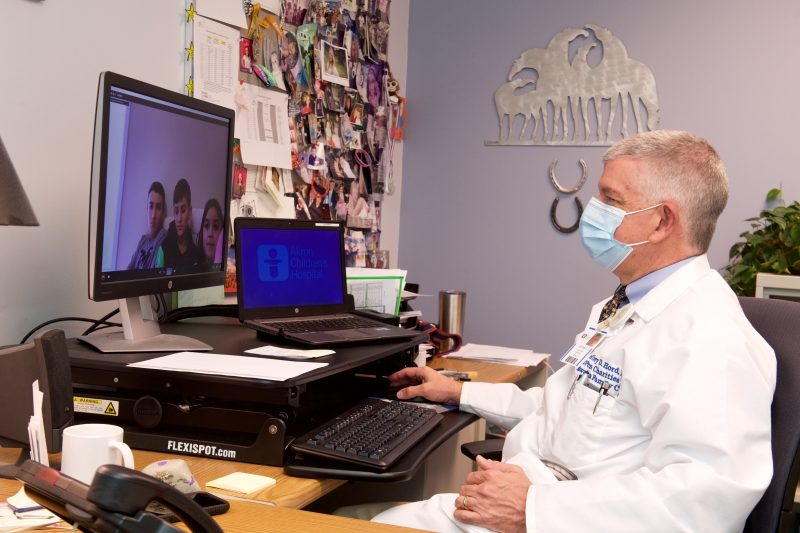The coronavirus pandemic has brought changes to health care, including one in particular that has made life a little bit easier and safer for the Workinger family of Wadsworth.

The Workinger siblings, Kyle (left), Joshua (center) and Alexis (right), share an inherited blood disorder.
Three Workinger children have an inherited blood disorder. For the first time this year, the kids were able to use telehealth services to see their providers in the Hemostasis and Thrombosis Center, which is part of the Showers Family Center for Childhood Cancer and Blood Disorders.
Telehealth worked out well for their annual visit with a team that included Dr. Jeffrey Hord, director of hematology-oncology; nurse Kristine Manges, program coordinator Irene Boehlefeld and social worker Doug Palmer.
The children, Joshua, 13, Kyle, 11, and Alexis, 6, have von Willebrand disease, the most common inherited bleeding disorder. It stems from a deficient protein that helps the blood clot. The disorder leads to prolonged bleeding from a cut or surgery. Some people don’t even know they have the disease. Von Willebrand disease may affect 1 to 2 percent of the U.S. population, but the majority have not been diagnosed.
The children’s mother, Michelle, said telehealth allowed the kids to stay in school longer before being pulled for their appointments, and also gave her husband, Nick, a chance observe the kids talking with their providers.
“That would not have happened had we met face to face, due to hospital regulations allowing only one adult with the kids for visits,” Michelle said.
“The children were also grateful to conduct the appointments from home so they didn’t have to wear their masks for a long appointment,” she added.

The Workinger family appreciated the convenience of having telehealth appointments with Dr. Hord, which allowed them to stay in the comfort of their home.
Boehlefeld said families have taken to virtual visits.
“Our families absolutely love it,” she said. “It makes it a lot easier, and kids tend to interact more because they’re in their own environment. I’ve had some of the best visits through telehealth, especially with teens patients.”
The Workinger children have the mildest form of von Willebrand disease, known as Type 1. Michelle said she and Nick are cautious about the children’s activities, but the disease has not restricted them too much. The boys play baseball and basketball, although football is off limits. Alexis is a dancer.
“It’s a balancing act. We’ve had to learn what works for us and works for the kids,” Michelle said. “Every year they get a little more independent. We’ve had some injuries and some bleeds, but we’re not freaked out by it.”
Medications to speed the clotting process may be given after an injury or before surgery or a dental procedure.
The department had not conducted telehealth visits before the pandemic, but has done close to 200 in the past year or so. Dr. Hord said telehealth is here to stay. It works well for annual exams, where tests or other hands-on procedures aren’t necessary.
“In children with chronic bleeding disorders, we try to touch base with them annually to look over their whole health situation,” Dr. Hord said. “With kids who haven’t had complications, we can cover a lot of our bases virtually, while protecting them from exposure to COVID-19 and protecting the staff.”
Learn more about Akron Children’s telehealth services. For more information about the Showers Family Center for Childhood Cancer and Blood Disorders, call 330-543-8580.










